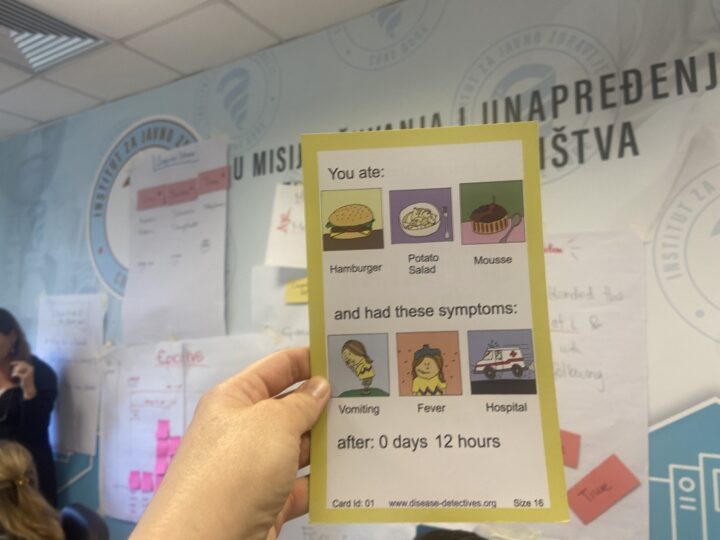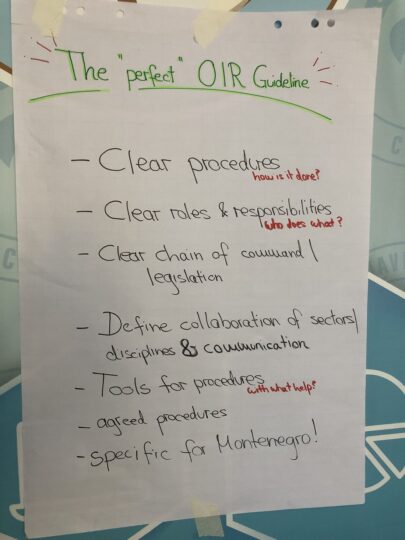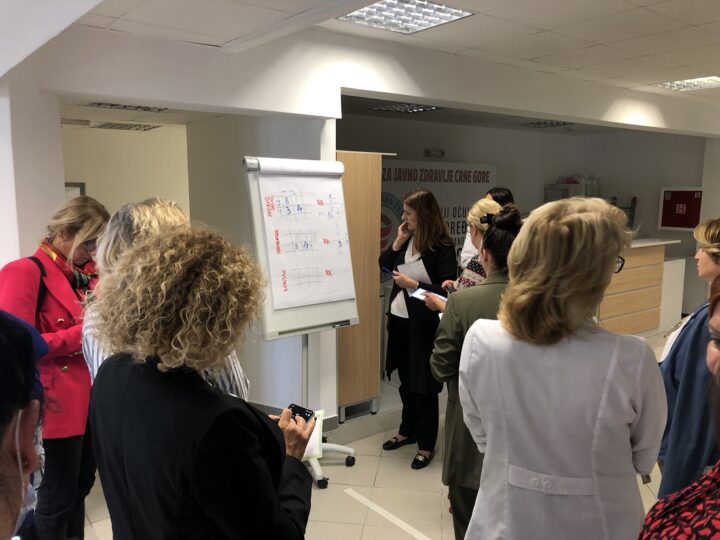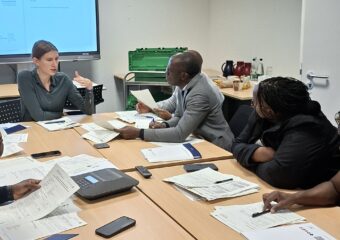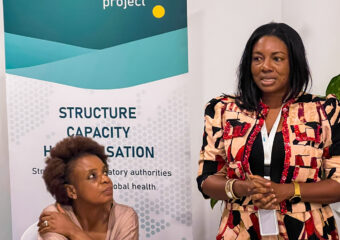Interactive Revision of the newly Developed Intersectoral Guidelines for Outbreak Investigation in Montenegro
Epidemiologists from the veterinary and public health sectors exercise and revise the first draft of the newly developed intersectoral guidelines for outbreak investigations in a simulated outbreak scenario.
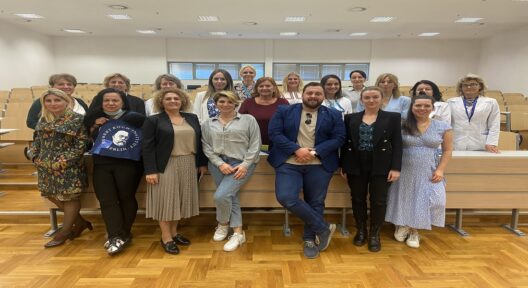
Background and Objectives
The RKI has actively cooperated with the national Institute of Public Health in Montenegro (IPH) within the GETPrepaReD project since 2016. In this context, a kick-off workshop was held in March 2019, in which the need for the development of outbreak investigation guidelines was identified, their framework and objectives defined and the development planned. The guidelines are intended to encompass the procedures of both the public health sector and the veterinary and food control sector in an outbreak event. A first draft of these guidelines was completed in October 2022. Subsequently, an intersectoral workshop was held by the RKI and IPH on 17 – 18 November 2022. The workshop’s aim was to test the newly developed outbreak investigation guidelines with the authors with regard to their functionality and to include possible suggestions for improvement for a final version.
Implementation of the Activity
The workshop took place in a training room at IPH and was facilitated by RKI staff Nadine Zeitlmann and Janina Stauke. A total of 18 participants – including 8 IPH epidemiologists, 6 staff members of the National Authority for Animal Health and Food Safety, 2 hygiene inspectors and 2 staff members of the National Sanitary Inspectorate – took part in the workshop. A team of 2 interpreters translated the contents of the workshop consecutively from English into Montenegrin and vice versa.
At the beginning of the workshop, the participants engaged in activating exercises to get to know each other, including their and their institutions interconnectedness, their involvement in the preparation of the guidelines as well as their experience with outbreak investigations. Bozidarka Rakocevic, Head of the Centre for Control and Prevention of Communicable Diseases at IPH Montenegro, then gave a brief overview of the draft of the newly developed guidelines.
For the main part of the workshop, a foodborne outbreak after a joint dinner in Montenegro was simulated. For this purpose, an interactive card game was used, in which each workshop participant received a card and thus simulated a sick or a non-sick person in the outbreak scenario (see Figure 1; source: Disease Detektives).
The draft guidelines were applied in the scenario to investigate and respond to this outbreak. In addition to investigating the simulated outbreak, participants were invited to revise each outbreak investigation step they had completed to see if it was included in the guidelines and whether there were suggestions for improving that step (see Figure 2). As an orientation for “best practice”, the participants collected characteristics of a “perfectly written” guideline for Montenegro at the beginning of the session (see Figure 3). Suggestions for improvement were collected on flipcharts.
At the end of the workshop, these suggestions for improvement were collected and discussed with regard to their implementation and steps for the preparation of the next draft were determined.
Results and next steps:
Participants from all sectors gave positive feedback on the workshop, which was perceived as very helpful (see Figure 4). It was also possible to identify at least one suggestion for improvement in most of the completed outbreak investigation steps, as well as to assess basic structural communication channels between the veterinary and public health sectors and to initiate improvements. This will be helpful to the guideline’s authors for the revision process.
The next steps were set as follows:
- Conduct a workshop to clarify communication channels and cross-sectoral sections of the plan (possibly involving the veterinary sector in Germany).
- Revision of the document with regard to the proposed changes by the respective responsible sectors for the preparation of a second version.
- In the long term: development and implementation of an interactive, application-related training for future users of the guidelines (also at subnational levels).
The RKI will continue to accompany the process of finalising the guidelines, until the end of 2022 as part of the GETPrepaReD project and from 2023 on as a work package of the new “WASP project” in the GHPP funding phase 2.
Date: December 2022

